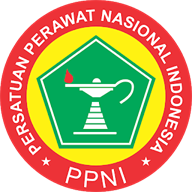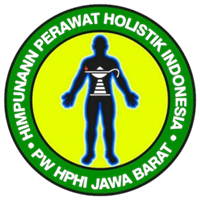A Case Study of Congklak Play Therapy for Children to Improve Social Interaction Due to Gadget Addiction
DOI:
https://doi.org/10.52221/jvnus.v3i2.313Keywords:
congklak play therapy, gadget addiction, social interaction disorderAbstract
Objective: To see the effectiveness of congklak play therapy in increasing social interaction in children because of gadget addiction.
Method: The research design used is a case study research method with a descriptive research type. The research subject used was a school-age child client with social interaction problems due to gadget addiction.
Result: Subjectively, the client experiences an increase in interaction with the people around him and a decrease in the intensity of his use of gadgets. Clients can better control their emotions, and there is an increase in learning. Likewise, objectively, the client seems to be able to control his emotions and often interacts with the people around him.
Conclusion: After doing research on An. M., the data obtained by the client's mother complains that the client rarely interacts with other people; the client often plays gadgets until he forgets the time; and when the gadget is taken, he often gets angry. The client's mother gets information from the client's school teacher that the client is less cooperative while studying at school. Based on the assessment, the diagnosis that emerged was social interaction disorder. The author conducted an intervention to overcome social interaction disturbances for four days. The intervention that the author has done is to provide congklak play therapy. After the intervention, the client's signs and symptoms of impaired social interaction diminished. The client has often interacted with people around him by using his gadget a little less.
Downloads
References
Agesti, L. P., Fitryasari, R., Armini, N. K. A., & Yusuf, A. (2019). Hubungan smartphone addiction dan Self-efficacy dengan prestasi akademik pada remaja. Jurnal Keperawatan Jiwa, 1(1), 1–6.
Anaitulloh, S., Sutijono, S., & Farid, D. A. M. (2021). Play therapy dengan permainan tradisional “bentengan” efektif meningkatkan kemampuan interaksi sosial siswa saat pandemi Covid-19. TERAPUTIK: Jurnal Bimbingan Dan Konseling, 5(1), 40–47.
Anggraeni, Y. (2020). Pengawasan Orang Tua Dalam Penggunaan Gadget Pada Anak Di Ra Yapsisumberjaya Lampung Barat. UIN Raden Intan Lampung.
Ariston, Y., & Frahasini, F. (2018). Dampak penggunaan gadget bagi perkembangan sosial anak sekolah dasar. Journal of Educational Review and Research, 1(2), 86–91.
Dewi, G. A. N. T. (2020). The Effectiveness of Play Therapy and Positive Reinforcement to Reduce Gadgets Addiction in Children. Proceedings of The ICECRS, 8.
Dewi, N. L. M. A., Astutik, W., & Widayati, K. (2021). Pengaruh Keterlibatan Orangtua Membuat Mainan Kardus terhadap Durasi Penggunaan Gadget Anak Prasekolah. Media Karya Kesehatan, 4(1).
Hanifah, D. N., Indriyani, D., & Utami, R. (n.d.). HUBUNGAN PENGGUNAAN GADGET DENGAN INTERAKSI SOSIAL SIBLING PADA ANAK USIA SEKOLAH (11-12 TAHUN) DI SDN SUMBERSARI 1 JEMBER.
Hayati, S. N., & Hibana, H. (2021). Reaktualisasi Permainan Tradisional untuk Pengembangan Kreativitas Anak. Jurnal Pelita PAUD, 5(2), 298–309.
Hs, A. H., & Hidayat, B. (2021). Solusi Gangguan Smartphone Addiction Berdasarkan Pendekatan Psikologi Islam. Al-Hikmah: Jurnal Agama Dan Ilmu Pengetahuan, 18(1), 65–78.
Inaha, R. P. (2020). HUBUNGAN DURASI PENGGUNAAN GADGET DENGAN KECERDASAN EMOSIONAL ANAK USIA 8-10 TAHUN DI MI NURUL ISLAM TANJUNG BENDO KABUPATEN MAGETAN. STIKES BHAKTI HUSADA MULIA MADIUN.
Kundari, N. F., Hanifah, W., Azzahra, G. A., Islam, N. R. Q., & Nisa, H. (2020). Hubungan dukungan sosial dan keterpaparan media sosial terhadap perilaku pencegahan COVID-19 pada komunitas wilayah Jabodetabek tahun 2020.
Lestari, M., & Susilawati, N. (2022). Adaptasi Orang Tua Menghadapi Perubahan Belajar Anak dari Belajar Daring menjadi Pembelajaran Tatap Muka. Jurnal Perspektif, 5(3), 452–460.
Nurhayati, S., Pratama, M. M., & Wahyuni, I. W. (2020). Perkembangan Interaksi sosial Dalam meningkatkan Kemampuan Sosial Emosional Melalui Permainan Congklak Pada Anak usia 5-6 tahun. Jurnal Buah Hati, 7(2), 125–137.
Ragil, D. R. A., & Sodikin, S. (2020). Hubungan Peran Pengawasan Orang Tua Dan Kecanduan Gadget Dengan Kemampuan Interaksi Sosial Pada Anak Usia Sekolah di SD Negeri 1 Pamijen Sokaraja. Jurnal Keperawatan Muhammadiyah.
Serlan, M. A., Irul, K., & Bunga, B. N. (2021). Hubungan Penggunaan Gadget dengan Interaksi Sosial Anak Usia Dini di Kelurahan Pasir Panjang Kecamatan Kota Lama Kupang. Haumeni Journal of Education, 1(1), 1–8.
SETIANINGSIH, S., SAWITRI, E., & TRIHASTUTI, A. (2022). Hubungan Penggunaan Gadget dengan Perkembangan Personal Sosial Anak Prasekolah Taman Kanak Kanak di Desa Pogung Cawas. MOTORIK Journal Kesehatan, 17(2), 85–94.
Siti, A. (2021). Penerapan Terapi Bermain Untuk Meningkatkan Interaksi Sosial Pada Anak Autis Di Yayasan Rumah Mentari Kecamatan Sidoharjo Kabupaten Pringsewu. UIN Raden Intan Lampung.
Syahrudin, S. (2019). Pengaruh efikasi diri dan dukungan sosial teman sebaya terhadap prestasi belajar. Cognicia, 7(4), 507–526.
Tamsil, H. A. (2021). “Permasalahan Penggunaan Gadget Pada Tumbuh Kembang Anak Usia Dini di Masa Pandemi COVID-19. Jendela PLS: Jurnal Cendekiawan Ilmiah Pendidikan Luar Sekolah, 6(1), 44–49.
Wahyuningsih, D. D. (2018). KEEFEKTIFAN TERAPI BERMAIN UNTUK MENGURANGI PENGGUNAAN SMARTPHONE YANG BERLEBIH PADA SISWA SEKOLAH DASAR. JURNAL ILMIAH KONSELING, 18(1).
Wijayanti, M. (2021). DETEKSI DINI DAN STIMULASI PERKEMBANGAN USIA SEKOLAH. Karya Ilmiah, Universitas Muhammadiyah Magelang.
Wulandari, D., & Lestari, T. (2021). Pengaruh gadget terhadap perkembangan emosi anak. Jurnal Pendidikan Tambusai, 5(1), 1689–1695.
Yuliarti, M. S. (2020). Interaksi Sosial dalam Masa Krisis: Berkomunikasi Online Selama Pandemi COVID-19. Prosiding Nasional Covid-19, 15–20.
Downloads
Published
How to Cite
Issue
Section
License
Copyright (c) 2021 Andan Firmansyah, Henri Setiawan, Nizar Ahmad

This work is licensed under a Creative Commons Attribution 4.0 International License.















